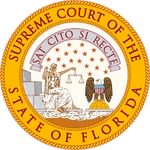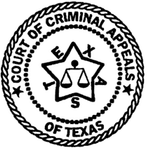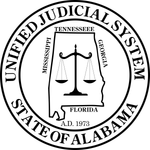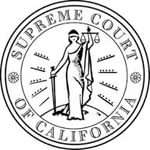
NEWS (2/4/21) — Florida: The Florida Supreme Court has issued two opinions denying relief to death-row prisoners.
In Randolph v. State, the court denied Richard Barry Randolph’s claim that his judge-imposed death sentence after a non-unanimous jury recommendation for death violated the constitutional requirement that a jury unanimously find all the elements of an offense beyond a reasonable doubt. The court rejected Randolph’s argument that whether aggravating circumstances outweigh mitigating circumstances is an element of the crime of capital murder. It further held that Randolph’s argument was simply a different way of asserting that the court should apply its decisions on jury unanimity retroactively, which the court has consistently refused to do.
In Harvey v. State, the court denied Harold Harvey’s claim that his lawyer had unconstitutionally conceded guilt to first-degree murder without giving Harvey notice and the opportunity to object to that strategy. It further held that the U.S. Supreme Court decision in McCoy v. Louisiana applied only in cases in which counsel conceded guilt over a client’s express objection and that Harvey had not expressly objected to counsel’s strategy.

NEWS (2/3/21) — Texas: The Texas Court of Criminal Appeals has granted a stay of execution to Edward Busby to permit him to litigate his claim that he is intellectually disabled and therefore ineligible for the death penalty. His execution had been scheduled for February 10, 2021.
The ruling was the second time in less than a month that the court has stayed an execution and directed the trial court to consider a death-row prisoner’s claim of intellectual disability. On January 15, the court stayed Blaine Milam’s execution and remanded his case to the trial court with directions that it assess Milam’s claim applying a clinically appropriate definition of the disability.
For years, the Texas courts had applied unconstitutional criteria to deny dozens of challenges brought by death-row prisoners who presented evidence of intellectual disability. After the U.S. Supreme Court struck down the Texas criteria, the cases have wound their way back through the state courts.

NEWS (2/1/21) — Alabama: The Alabama Supreme Court has ruled that the execution of Willie B. Smith III can go forward February 11 with COVID precautions. The court denied a motion by Smith to delay the execution because of COVID concerns.
The federal district court in Alabama has also denied Smith’s challenge to Alabama’s refusal to allow his spiritual advisor in the execution chamber during his execution. The court held that the protocol does not significantly infringe on Smith’s right to religion, as he is allowed religious counsel until he is in the execution room. The court also held that the protocol restrictions are justified given the state interest in ensuring a safe execution. Smith has appealed that ruling.
Smith, who was sentenced to death by the trial judge after a non-unanimous jury sentencing vote, has presented evidence that he is ineligible for the death penalty because of intellectual disability. However, the state and federal courts rejected his claim, applying review criteria that the U.S. Supreme Court later struck down as unconstitutional. Although a federal appeals court agreed that he satisfies the clinical criteria for intellectual disability, it refused to reconsider his intellectual disability claim, ruling the Supreme Court decision had created a new rule of law. The Supreme Court subsequently declined to review Smith’s case.

NEWS (2/1/21) — California: The California Supreme Court has upheld the convictions and sentences of two death-row prisoners.
In People v. Johnsen, the court affirmed Brian David Johnsen’s murder conviction and death sentence, denying a long list of challenges to the constitutionality of his trial and sentencing proceedings. These include allegations of an improper refusal to change venue, improper questioning by jailhouse informants, improper jury instructions, improperly admitted evidence, misstatements of law by the prosecution, jury misconduct in asking for outside advice on the outcome of the trial, improper victim impact evidence, introduction of unfairly prejudicial evidence at sentencing, and prosecutorial misconduct during arguments.
In People v. Baker, the court affirmed Paul Wesley Baker’s conviction and death sentence in the burglary, rape, and murder of a Los Angeles woman whom he had been dating. The court upheld Baker’s conviction over objections that the prosecution had impermissibly exercised its discretionary strikes to remove the only two Black jurors who had not previously been successfully challenged for cause. The appeals court accepted the trial court’s finding that the strikes were not motivated by race, but rather by the prosecutor’s race-neutral assessment of the jurors’ willingness to impose the death penalty.
The court also denied Baker’s challenge to his conviction based upon the prosecution’s introduction of evidence of uncharged crimes, including evidence of sexual assault and domestic abuse. The court held that the evidence was relevant to show Baker’s propensity for sexual assault and domestic abuse and that the probative value of the evidence outweighed its cumulative prejudicial impact.